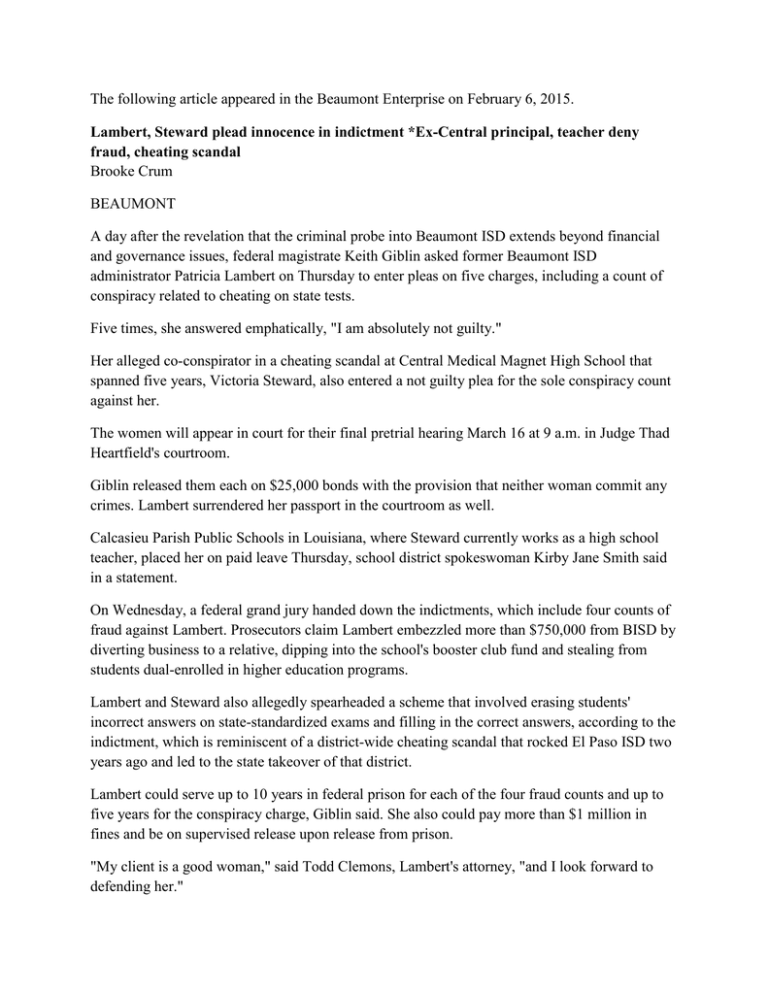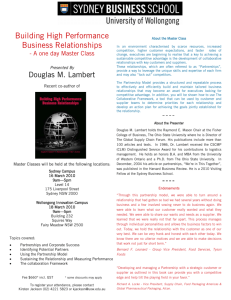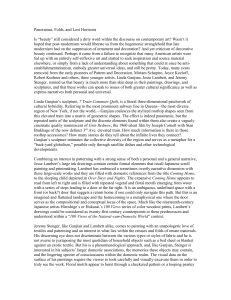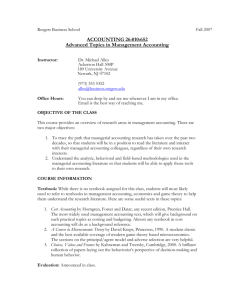The following article appeared in the Beaumont Enterprise on February... Lambert, Steward plead innocence in indictment *Ex-Central principal, teacher deny
advertisement

The following article appeared in the Beaumont Enterprise on February 6, 2015. Lambert, Steward plead innocence in indictment *Ex-Central principal, teacher deny fraud, cheating scandal Brooke Crum BEAUMONT A day after the revelation that the criminal probe into Beaumont ISD extends beyond financial and governance issues, federal magistrate Keith Giblin asked former Beaumont ISD administrator Patricia Lambert on Thursday to enter pleas on five charges, including a count of conspiracy related to cheating on state tests. Five times, she answered emphatically, "I am absolutely not guilty." Her alleged co-conspirator in a cheating scandal at Central Medical Magnet High School that spanned five years, Victoria Steward, also entered a not guilty plea for the sole conspiracy count against her. The women will appear in court for their final pretrial hearing March 16 at 9 a.m. in Judge Thad Heartfield's courtroom. Giblin released them each on $25,000 bonds with the provision that neither woman commit any crimes. Lambert surrendered her passport in the courtroom as well. Calcasieu Parish Public Schools in Louisiana, where Steward currently works as a high school teacher, placed her on paid leave Thursday, school district spokeswoman Kirby Jane Smith said in a statement. On Wednesday, a federal grand jury handed down the indictments, which include four counts of fraud against Lambert. Prosecutors claim Lambert embezzled more than $750,000 from BISD by diverting business to a relative, dipping into the school's booster club fund and stealing from students dual-enrolled in higher education programs. Lambert and Steward also allegedly spearheaded a scheme that involved erasing students' incorrect answers on state-standardized exams and filling in the correct answers, according to the indictment, which is reminiscent of a district-wide cheating scandal that rocked El Paso ISD two years ago and led to the state takeover of that district. Lambert could serve up to 10 years in federal prison for each of the four fraud counts and up to five years for the conspiracy charge, Giblin said. She also could pay more than $1 million in fines and be on supervised release upon release from prison. "My client is a good woman," said Todd Clemons, Lambert's attorney, "and I look forward to defending her." Lambert, who worked for BISD for more than 12 years, retired June 11, 2014, according to the district. At the time, she earned an annual salary of $110,284. Steward, who resigned from BISD in August, could serve up to five years in federal prison and pay up to $250,000 in fines for the single conspiracy charges against her. When she quit, Steward earned an annual salary of $63,500, according to BISD. Alphonso Anderson, Steward's attorney, said he advised his client and her family members not to discuss the case with anyone. "Our goal is to litigate this matter in trial court and not in the press," he said. The conspiracy charges against Lambert and Steward diverge from previous prosecutions of former BISD employees, who exploited the district's lax internal controls and embezzled several millions. Two former finance officers are currently serving prison sentences for embezzling more than $4 million. The accusations against Lambert and Steward coincide with a nationwide epidemic of school cheating scandals in which teachers and administrators have padded students' standardized test scores, which are linked to educator performance and compensation, said David Kwok, an assistant professor of law at the University of Houston who specializes in white-collar crimes. "There's a lot of incentives at play here," he said Thursday. "Ideally, when these types of incentives are put into play, the Legislature's intention is to have teachers teach better so students do better on performance exams, as opposed to surreptitiously changing the exams afterward." A Georgia state investigation into a cheating scandal at the Atlanta Public Schools last year implicated more than 180 teachers and administrators in 44 schools, according to the Los Angeles Times. Kwok said the fabrication of test scores is "definitely linked to some personal interests" because of these incentives. Whether the cheating led to the embezzling, Kwok did not pose any theories, but he said oftentimes the reasoning for investigating minor offenses is because they led to the same people who commit major offenses. Understanding why people commit crimes is still an ill-defined science, he said. "Oftentimes white-collar offenses, people aren't desperate," he said. "They're not starving. Some people are very wealthy and commit securities fraud and the like. We don't really have a good explanation of what pushes someone over the edge." The fact that Lambert allegedly stole from individual students, as one of the fraud counts asserts, likely will not help her case in a jury trial, Kwok said. He said there was a long line of research that indicates juries typically are sympathetic to the status of the victim, independent of the issue of the offense. "If you steal money, juries are less willing to convict if you steal from Uncle Sam, for example, than a poor old widower," he said. "The fact that there will be individual victims at play, that's not a good sign for opting for a jury trial." BCrum@BeaumontEnterprise.com Twitter.com/broocrum








